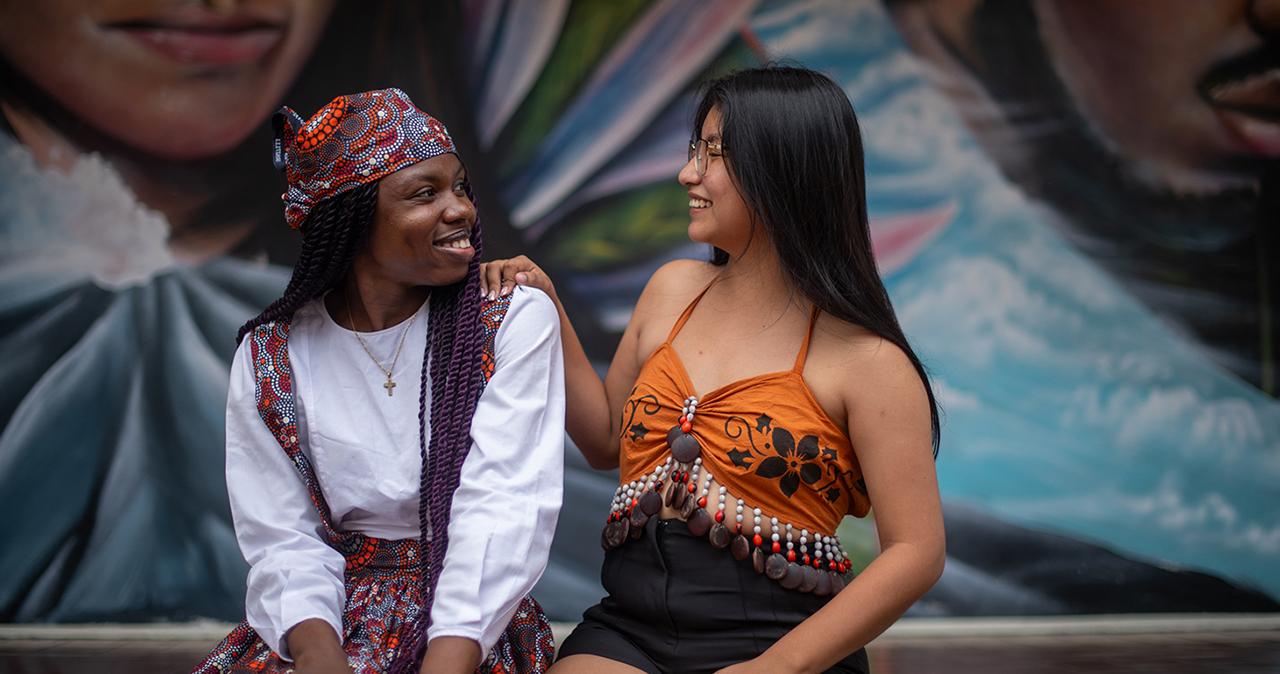Walking around EARTH University’s Guácimo campus feels like visiting the United Nations. As you enter the cafeteria, you may hear people speaking Spanish at one table and Shona, Swahili, French, or Quechua at another. The EARTH community has learned to say thank you in many languages, and this cultural richness can be seen in every corner of the university and daily life on campus.
The mix of cultures, languages, backgrounds, and beliefs allows us to practice tolerance, patience, and empathy, enabling positive communication among students, staff, and faculty. Support networks are in place to help overcome cultural, religious, and racial stigmas.
This approach is fundamental to EARTH’s educational model. Students have the opportunity to work with peers of different nationalities and thus broaden their worldviews, learn about other cultures, and find commonalities in the daily challenges of their communities. They partner to find solutions that work not only in Guatemala, Costa Rica, or Colombia but also in Jamaica, Kenya, Zimbabwe, and other places around the world.
This multiculturalism has profoundly impacted the lives of two of our students.
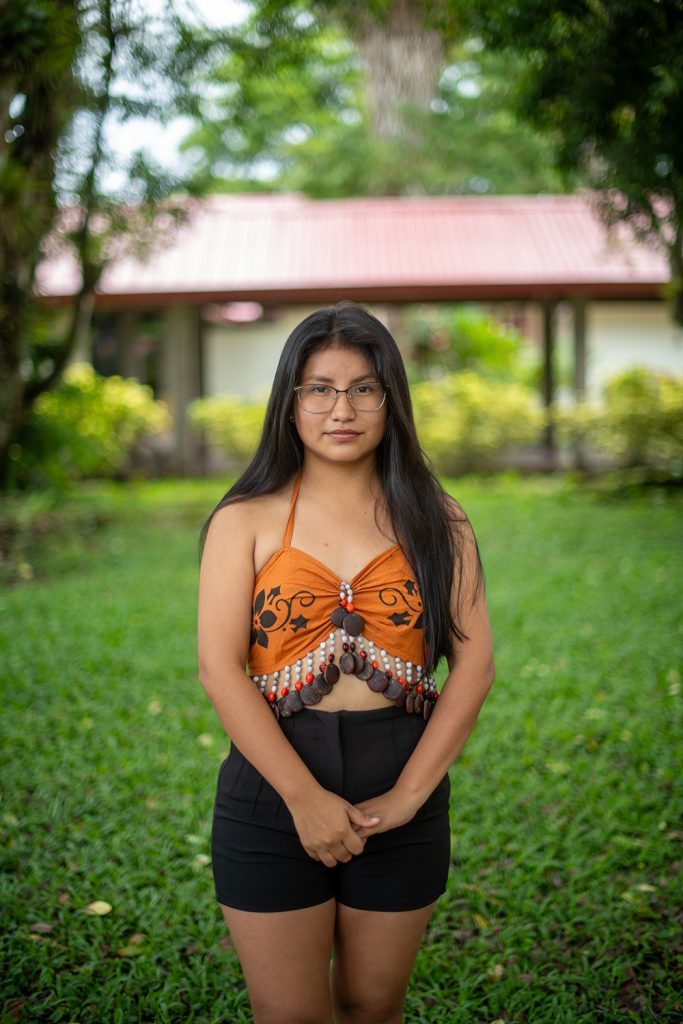
Dancing to Give Thanks to the Earth
Sharlyn Britney Baldeon Chupayo (Class of 2025, Peru) knows how to move her feet, arms, and hips. She was taught to dance by her maternal grandfather, an indigenous Huanca from the Andean region of Peru. She learned from her grandparents as a way to thank the Earth for corn, potatoes, and coffee. Sharlyn says she is mestizo – she is Huanca and also Asháninca, a blend of many indigenous cultures, with the richness of the Andes and the lush green of the Amazon in her blood.
Every time Sharlyn takes the stage at EARTH to dance in front of our community, she demonstrates what her ancestors have done for hundreds of years, connecting with other people and the essence of the earth. Sharlyn wears her culture with pride, and she shows it through her dance steps, colorful costumes, and symbolic makeup honoring her family. Whenever she has the opportunity, Sharlyn dances.
It is important for Sharlyn to share her cultural traditions not only at EARTH, but also in her own community, because many generations and ethnic groups in Peru are being absorbed by globalization, and traditions are being forgotten. “Globalization gives us access to new things, and that causes people to lose their customs. So, there are very few of us left who practice the dances. Some of us young people are constantly fighting to reclaim our culture,” she explains.
Her grandfather not only taught Sharlyn how to dance, but he also taught her how to work the land, showing her how to plant crops according to the movements of the moon and the seasons – all of which is indigenous knowledge, she says. When she arrived at EARTH, thanks to the Mastercard Foundation Scholars Program, she was impressed to meet classmates from so many diverse cultures with different knowledge and backgrounds. She saw this as a challenge and an opportunity to enrich herself both personally and professionally.
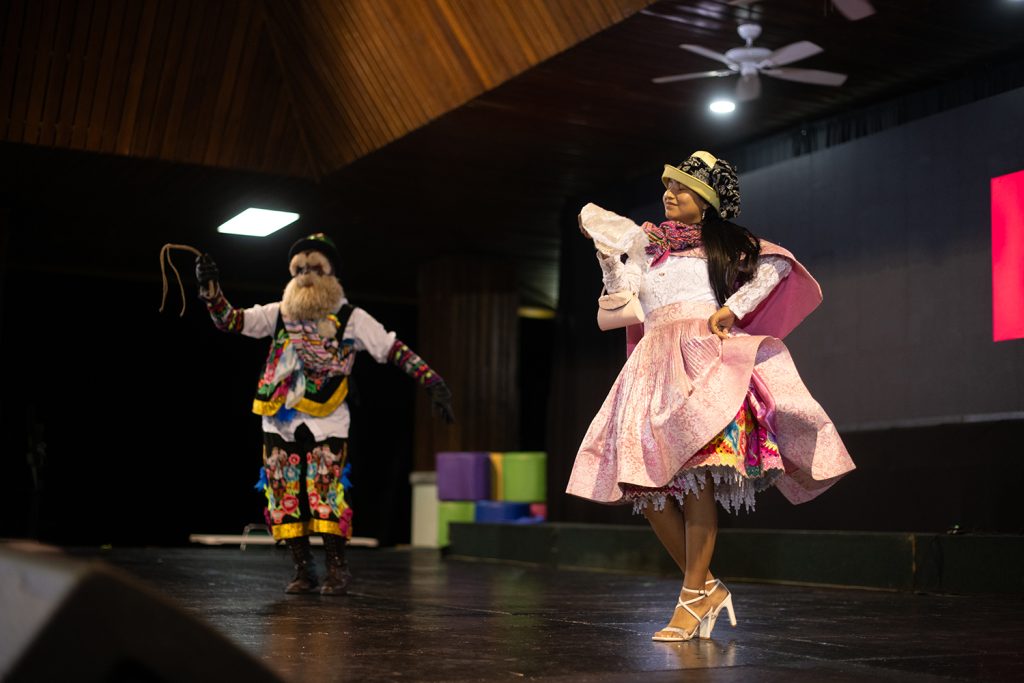
“I believe that having to coexist with many cultures and also claim my own will help me accept other people, be more patient, and treat people better. My career involves working with farmers and dealing with different people, so accepting myself and my roots will help me accept others. Learning the art of interacting with many cultures opens doors for you to learn how to thrive and appreciate the culture and knowledge of others. I wish that had happened to my grandfather because he had a lot of knowledge. But sometimes, he encountered professionals who thought they were superior to him because they had a degree. I want to make that difference.”
Sharlyn dreams of returning to Peru to create fairer markets, support small farmers, and train them in sustainable agricultural practices that will allow them to improve their production and quality of life.
Braiding Hair and Dancing to Claim Her Culture
Ifeoma Cynthia Ogbu (Class of 2026, Nigeria) is the eldest of four sisters in a country where she says every family is still expected to have a male child to care for the household. She says she is fortunate to have been born into her family because her parents, instead of being disappointed in not having a son, pushed her and her three sisters to study, work, and break gender stereotypes.
After high school, while Cynthia struggled to find a way to continue her college education, she worked as a secretary, teacher, cook, and hair braider. She learned how to braid hair by watching online videos and closely observing how others did it. For Cynthia, braiding hair is a way to honor her African culture, as braids have been used for hundreds of years not only as a form of expression but also as a way to communicate social status, age, ethnicity, and even encrypted escape routes for enslaved people.
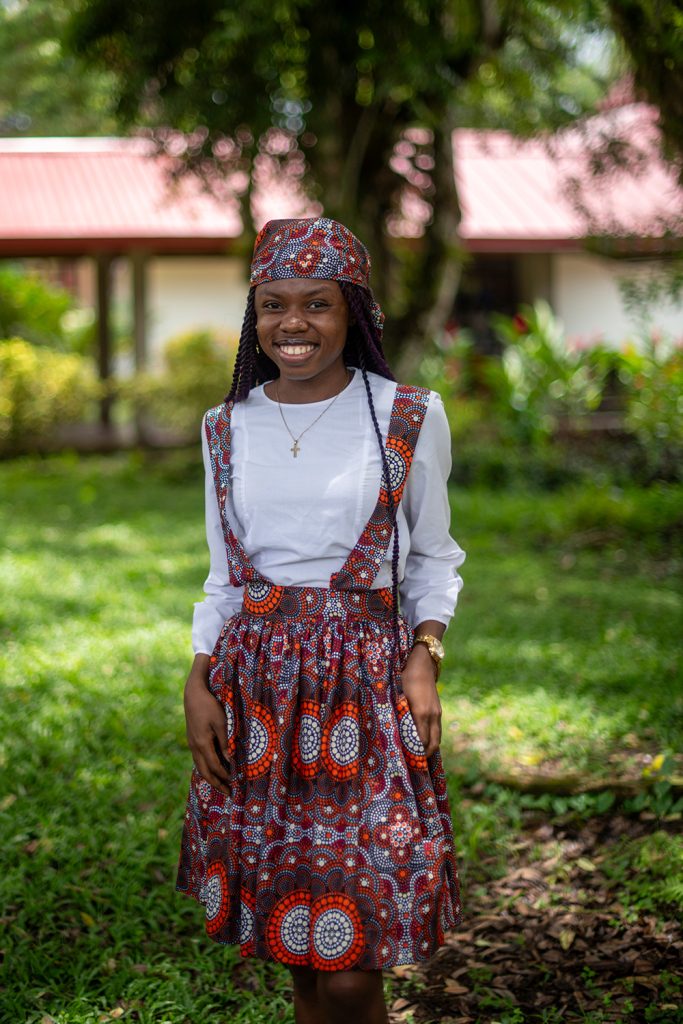
After her acceptance into EARTH and receiving a scholarship from the Mastercard Foundation Scholars Program, Cynthia traveled to Costa Rica in 2022 to participate in the Spanish Language and Cultural Immersion Program before beginning her studies in Agricultural Sciences. Upon arriving in Costa Rica, the culture shock went beyond the obvious. It took her a while to adjust to the food, the climate, and the language. However, Cynthia grew tremendously from the experience and was able to share her culture with her “Tico family,” who hosted her during her first months at EARTH, and new friends and classmates.
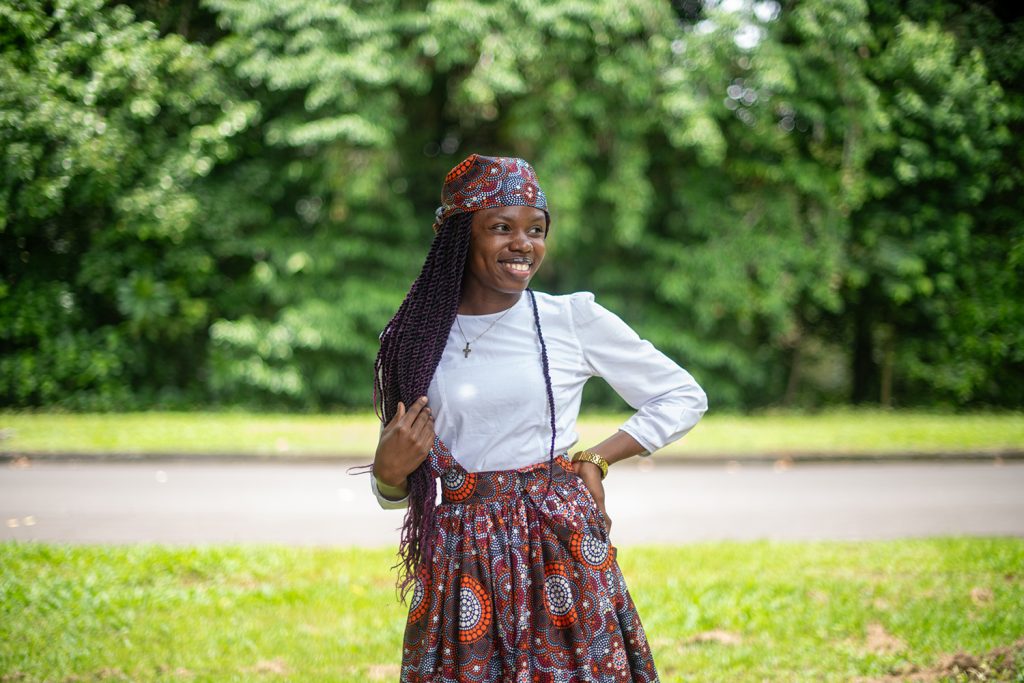
“EARTH is a place where you are free to make your own decisions; no one will discriminate against you because you are a woman. Here, you live in a multicultural environment and family atmosphere, where you should be open-minded and have the right to express yourself. At EARTH, you can share your opinions, and people listen. It is so comforting that you feel at home even though you are not at home. That’s why I feel so happy here.”
Like Sharlyn, Cynthia dances whenever she gets the chance. She dances with other students from Ghana, Uganda, and Cameroon. They dance to music from all over Africa, honoring the warm and joyful culture that defines them. They recently had the opportunity to perform their choreography outside the University at the Flowers of the African Diaspora Festival, held in San Jose.
For Cynthia, dancing to the rhythm of Afrobeats and braiding her classmates’ hair, which she does delicately and with great agility, means remembering with every movement where she comes from and where she is going.
